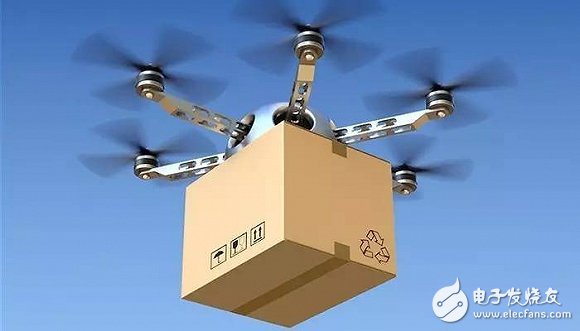According to Recode, 7-11, a world-renowned convenience store brand, recently completed 77 drone delivery services in Nevada, USA. This marks the first "takeoff" of conventional commercial drone courier services in the United States, leading Apple's Project Wing and Amazon's Prime Air in time. Recently, the White House also released a report on Artificial Intelligence, Automation and Economy, which talked about the economic impact of smart technology and automation technology, and possible coping strategies. The report believes: "The accelerated development of artificial intelligence technology has turned some tasks that require manpower into automation tasks. These revolutionary changes will open up new opportunities for individuals, the economy, and society, but they will also subvert millions of times. The life of Americans." Unmanned drone delivery is undoubtedly a pre-exploration area for the upcoming automation revolution. At least from the analysis of China's market environment, if the drone delivery is large-scale, the courier will face a great risk of being eliminated. This risk is like the threat of drivers and cashiers in autonomous driving and automated cashier systems. As the biggest demand for drone delivery services, the global e-commerce giant has already had a lot of exploration in this field. Amazon's drone delivery program began in 2013, but until recently, Amazon first used drones near Cambridge, England, to send consumers an Amazon Fire TV device and a pack of popcorn. Bezos evaluated this as a milestone. Alibaba first tried the drone distribution test in early 2015. The results show that the goods on Taobao can be shipped to the designated location within one hour. After that, Alibaba did not stop exploring the field of drone delivery. This year, it launched the distribution robot G and the intelligent packaging robot “Cao Caoâ€. Jingdong pays more attention to the long-distance drone transportation field and hopes to open up the rural e-commerce market. Last year, Jingdong conducted a trial operation of a rural drone project in Suqian, an eastern Chinese city. At present, Jingdong's drones can carry 10-15 kilograms of cargo and have a cruising range of 10-15 kilometers. However, there are currently two reasons that are hindering the marketization of drone delivery. The first is the technical level. At present, the problems of load, battery life, precise positioning, and automatic driving technology are not well solved. Second, the biggest factor affecting the commercialization of drone delivery comes from regulatory policies. From the domestic situation, the current UAV supervision is still a vacuum zone, and there are still no specific legal rules applicable to the manufacture and use of UAVs in civil aviation regulations and regulations. Even in developed countries, the current drone supervision has not fully kept pace with the development of the industry. The U.S. government did not announce the drone regulation rules until June of this year. Although small UAVs for education and scientific research were allowed to fly at low altitudes, commercial drone delivery services were suspended. From the current situation, the field of drone delivery is still at a very early stage of development. However, the imperfection of the regulatory system also means that there is a large fuzzy area for commercial companies to explore the application scenarios. The initial stage of an industry will always face various problems, but once the supporting facilities are complete, the popularity will be very fast. Similar cases include net and non-piled bicycles. In addition, due to the high popularity of Chinese e-commerce, China is likely to become a leader in this round of global competition for drone delivery. Since the industrial revolution, manpower has been replaced by machines, which is the inevitable direction of social progress. After a large number of repetitive and low value-added jobs are handed over to the machine, humans have more free time to spend and can do more creative work. The significance of industrial development is also here. It not only liberates human hands, but also liberates human brains.
Home Appliances Wire
We supply rigorous UL standard electronics wires used in internal wiring of home appliances and electrical equipment such as air conditioner, humidifier, washing machine, fridge, rice cooker, microwave etc. Insulations include PVC, SXL(XLPVC), silicone rubber and FEP with the heat resistance from 176°F(80°C) to 392°F (200°C). Feyvan electronics has carried R&D on covering materials for many years, even some special Insulation materials such as TPE, TPU, insects prevention and rats prevention, our engineers have much experience to provide professional solutions for you.
Home Appliances Wire,Electrical Panel Wiring,Home Wiring,Home Electrical Wiring Feyvan Electronics Technology Co., Ltd. , https://www.fv-cable-assembly.com